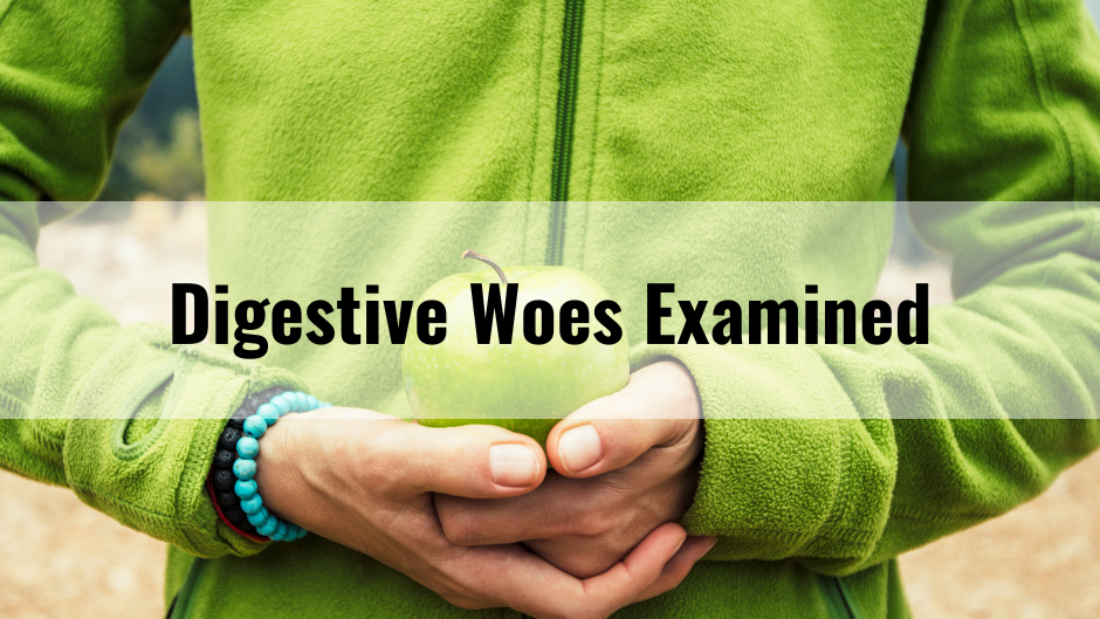It’s a common story. You’re having lunch with friends, and you mention that you’ve been experiencing a health problem. And with that remark, your friend goes into “problem solving mode” by recommending a specific diet or ingredient that they think may help you. Your friend means well, but it’s better to get medical advice from a reputable source to help solve your struggle.
Misinformation affects many of my clients:
“I’m so confused, I have read so many things online and have no idea what I SHOULD eat to get rid of my digestive woes!”
“I keep hearing that I should eliminate grains, beans, legumes, dairy. Well, what is LEFT to eat? Do I need to avoid those foods now too?”
“My friend told me no one can digest dairy. Dairy is meant for baby cows only and that I shouldn’t be consuming it. Do I need to be dairy free too?”
“My daughter is allergic to so many foods, I don’t know how to prepare quick and delicious meals anymore. I’m in a food rut.”
“I’m making two different meals at mealtime. One regular for the family, and then Low FODMAP for me. But, I can’t keep up. It’s so stressful, but I don’t know what to do.”
“I’m constipated on my gluten free diet. My friend said she started taking probiotic to improve constipation, should I do that?”
“I don’t understand why I am gaining all this weight. I need to lose weight, maybe I should go on gluten free diet!”
“I just ate something and I know it was gluten free, but now I feel bloated.”
“I’m so scared to go out and eat because I don’t know how I will feel after or if I will make it home in time for the bathroom.”
“I was told that I need to eliminate lactose and gluten from my diet. But, now, with my Low FODMAP diet, I am at a loss of what to eat and feel just as bad, if not worse.”
“I’ve just been diagnosed with celiac disease and I feel overwhelmed.”
“I don’t want to go out and eat anymore, because I’m scared I will be ‘glutened.”
“I am still SO tired. I have no energy. I thought my gluten free diet was suppose to make me feel better.”
“Food makes me scared. I used to love food and now it causes me anxiety and worry.”
“I heard I can take a digestive enzyme and I can eat big meal, is that right?”
“I still feel unwell. In order to heal the gut, I heard I should do the ketogenic diet.”
“Someone told me that even though I am celiac, I can eat gluten when I go to Italy.”
You are fighting with an embarrassing problem – excess gas, bloating and diarrhea. Your friend recommended a gluten-free diet and taking probiotics, but your friend is not a doctor or dietitian, so you were curious about this recommendation. Was it the right one for you? Let’s use the three-step approach to solve your struggle with gas, bloating and diarrhea.
PROBLEM
Your problem was that everything you ate seemed to give you gas, bloating and diarrhea. Your friend said to stop eating wheat and gluten, as well taking probiotics, but you weren’t sure if that was the right advice.
THE FACT
After reading a medical website, You were relieved to learn that gas, bloating and diarrhea are all common symptoms for IBS (Irritable Bowel Syndrome). You found helpful advice by searching the term “Gas” “IBS” “Gluten Free Diet”on these trusted websites: Dietitians of Canada, HealthLinkBC, Eat Right Ontario
You learned that gas, bloating and burping may be caused by swallowed air, medicines, supplements and certain food or drinks. So, maybe you were not properly digesting your dairy products or one of your supplements is causing the problem?
But you also noted that gas and bloating could be the sign of a condition, such as lactose intolerance, irritable bowel syndrome (IBS) or celiac disease. You were unsure of the reason for your symptoms, and read that it’s important not to self-diagnose. You needed the help of your doctor.
You want to learn more about your friend’s suggestion to give up gluten in case you have celiac disease, so you visited the Canadian Celiac Association website. You learned that if you need to be tested for celiac disease, you need to be eating gluten (a protein found in wheat and other grains) before the test to get accurate results. If you had taken your friend’s advice to remove gluten from your diet, you could get a “false negative” result. Phew! You’re happy that you looked into it before making any changes to your diet. If you do need to go that route, you now knows to work with a dietitian before eliminating foods, since they can help you plan a balanced diet and ensure you meet nutrient needs.
SEEK SUPPORT
Now you know not to self-diagnose or rely solely on advice from websites or well-meaning friends. You will talk to your family doctor about your symptoms. If necessary you will see a gastroenterologist (digestive health doctor). You can also see a dietitian (like me!) to help you figure out which foods may be causing you discomfort.
TIPS FOR A HEALTHY GUT
How can you apply this newfound knowledge and actually create a healthier gut? Simple-just follow these tips!
- Eat prebiotic rich foods, like fruits and vegetables
- Eat probiotic rich foods, like yogurt, kefir, sauerkraut, kimchi and tempeh
- Get enough sleep
- Avoid stress
- Exercise regularly
- Maintain a healthy weight
Do you have digestion problems that you struggle with? You unsure you should supplement with probiotics? Don’t self-diagnosing? Contact Me about starting a nutritional counselling program.
Adapted from the Dietitians of Canada’s Nutrition Month campaign materials.


Leave A Comment